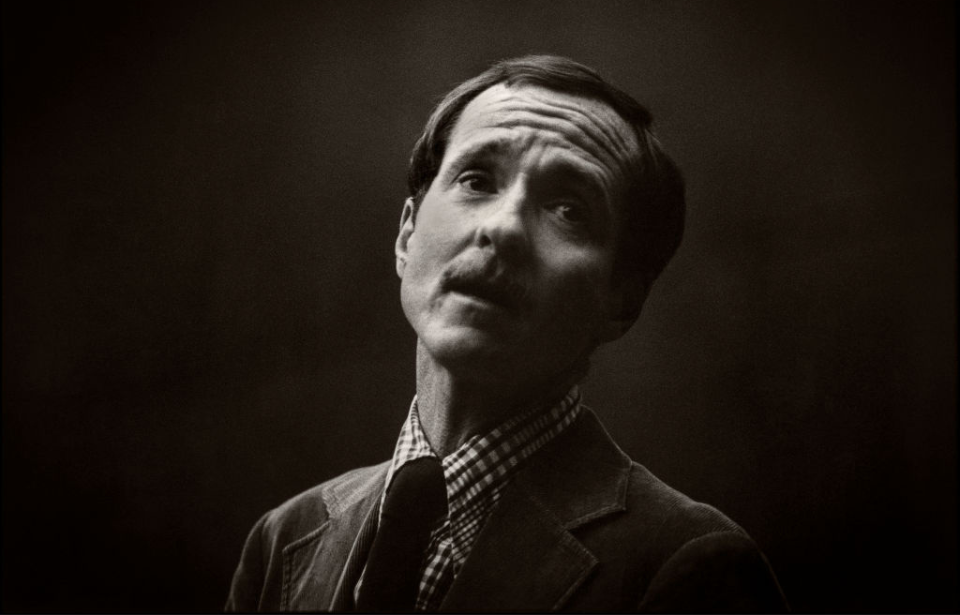After returning from his tour in Vietnam, U.S. Air Force Tech. Sgt. Leonard Matlovich found himself waging a different kind of battle—one not on foreign soil, but against the very institution he had loyally served. In 1975, he made history by openly declaring that he was gay, directly confronting the U.S. military’s longstanding ban on homosexuality.
His decision was unprecedented. Matlovich’s public stand drew international attention, landing him on the cover of TIME magazine and sparking one of the first major legal challenges to the military’s discriminatory policies. Though the Air Force ultimately discharged him, his courage ignited a broader movement for equality.
Matlovich’s fight became a defining moment in LGBTQ+ history, inspiring countless others to live authentically and demand fairness in the ranks—and beyond.
Leonard Matlovich’s early life
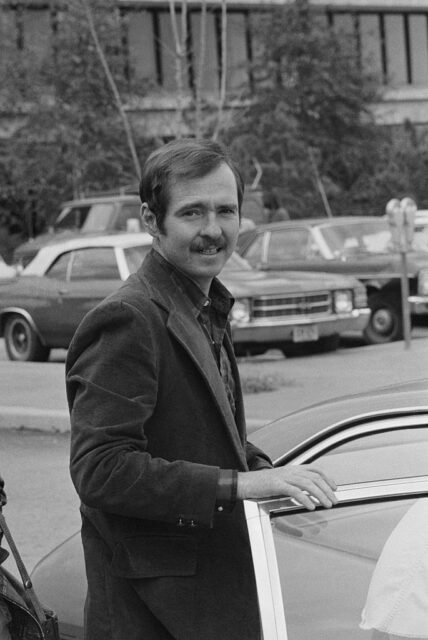
Leonard Matlovich’s connection to the US military began on July 6, 1943, when he was born at Hunter Air Force Base, Georgia, where his father, a retired US Air Force sergeant, was stationed. Matlovich grew up on military bases, as his family moved from installation to installation across the southern states.
Raised in the Catholic faith, Matlovich attended Bishop England High School in South Carolina, although he humorously referred to his education as being from “Air Force high school.” As a teenager and young adult, he acknowledged holding regressive views, including opposition to the 1964 Civil Rights Act, having admiration for Confederate symbols and having major prejudice against homosexuals, despite his own personal struggles.
Service in Vietnam
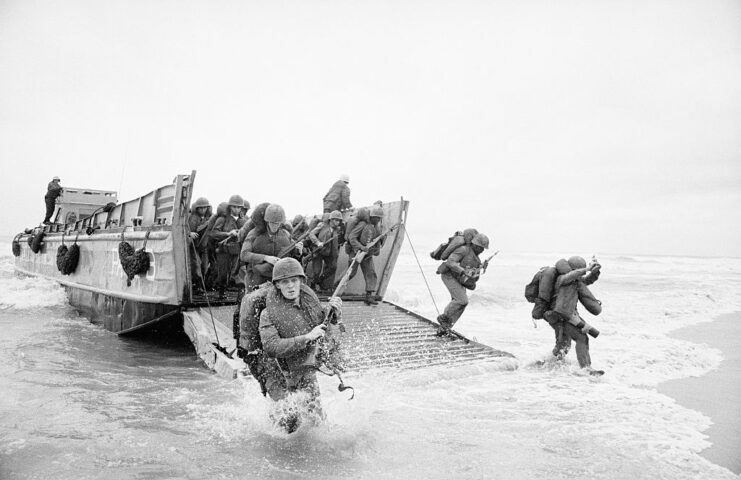
Leonard Matlovich takes a stand
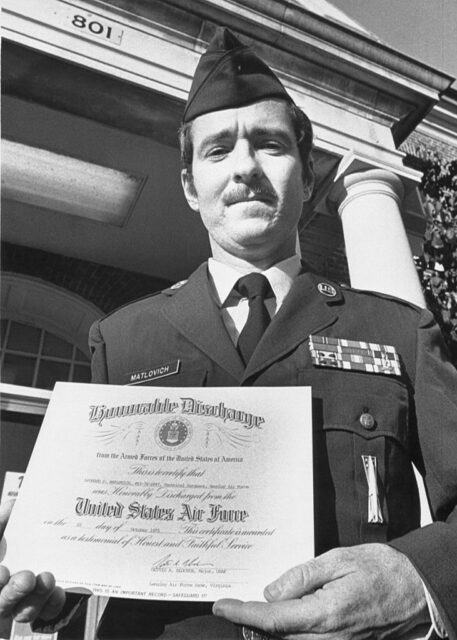
After completing his service in Vietnam, Leonard Matlovich became a race relations instructor and a drug abuse counselor back in the United States. It was during this time that he finally began to accept who he really was, visiting gay bars and coming out to certain friends.
Things changed even more for Matlovich in March 1974, after he read an article by activist Frank Kameny in the Air Force Times, who was looking for a serviceman to challenge the gay ban in the US military. Matlovich reached out, and with his perfect service record was deemed an ideal fit.
With the help of American Civil Liberties Union (ACLU) attorney David Addlestone, they came up with their plan. On March 6, 1975, Matlovich delivered a personal letter to his commanding officer at Langley Air Force Base, Virginia, which read, in part, “I consider myself to be a homosexual and fully qualified for further military service. My almost twelve years of unblemished service supports this position.”
Military discharge
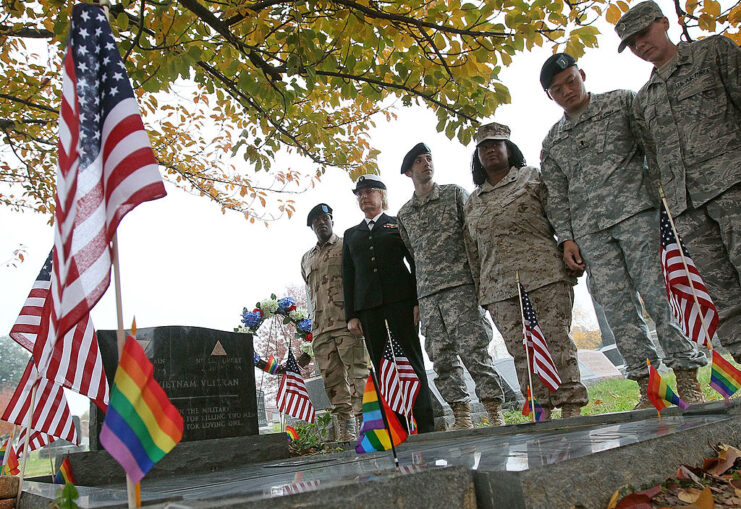
Leonard Matlovich’s exemplary service record—complete with a Bronze Star and a Purple Heart—couldn’t protect him from the rigid policies of his era. Despite his years of dedication, the Air Force ruled him “unfit for duty” after he refused to sign a document pledging to “never practice homosexuality again.” In October 1975, he was discharged with a General Discharge (Under Honorable Conditions), ending his 12-year career.
Unwilling to accept the injustice, Matlovich took his case to court, launching one of the earliest and most public legal challenges to the military’s ban on gay service members. After years of litigation, the Air Force eventually offered to reinstate him with a promotion and a $160,000 settlement. Understanding that reentry would only invite renewed persecution, he accepted the settlement and redirected his energy toward activism.
From that point forward, Matlovich became a tireless advocate for LGBTQ+ rights, using his voice and experience to push for equality and recognition—both within the armed forces and across American society.
Leonard Matlovich’s enduring legacy
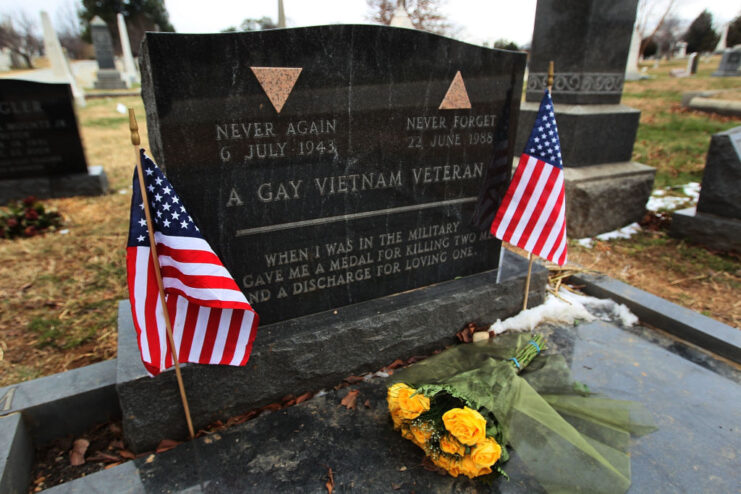
Leonard Matlovich may have lost his military career, but he became an icon for gay rights. He was featured in Time magazine, the first time an openly-gay man was placed on the cover of a major publication. He continued to be an activist in the community, assisting in many different campaigns to prevent homosexual discrimination.
Tragically, in September 1986, Matlovich was diagnosed with HIV/AIDS. Despite the toll this and his treatment took on him, he continued his advocacy, particularly against President Ronald Reagan‘s response to the crisis.
On June 22, 1988, Matlovich died after suffering complications from the condition. He was buried in the Congressional Cemetery in Washington DC, as the US military wouldn’t allow his memorial headstone to be included among those at Arlington National Cemetery. It reads: “When I was in the military, they gave me a medal for killing two men and a discharge for loving one.”
More from us: The Vought F-8 Crusader was Nicknamed the ‘Last of the Gunfighters’
Matlovich’s grave now serves as a memorial to gay veterans, as well as a site of ceremony for gay rights activists.
